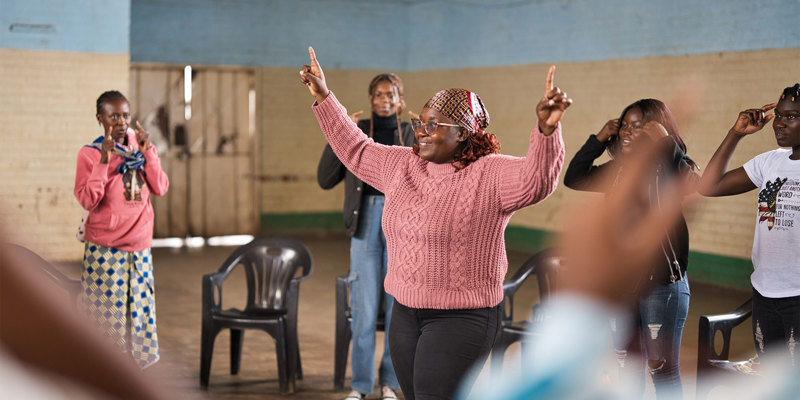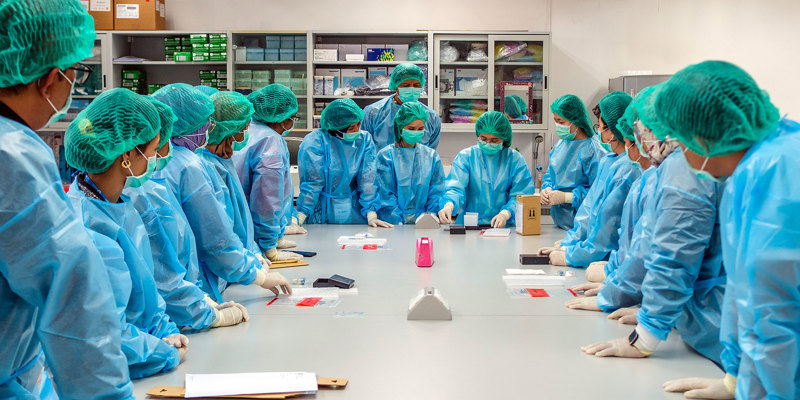Global Fund grant radically scales up Zanzibar's Malaria Program
27 February 2003
Zanzibar Town, Zanzibar – “My family and I live on less then a dollar a day,” says 43-year-old Mohamed from Zanzibar. Mohamed is a woodcarver in a downtown souvenir shop and father of four children. “So how can I pay for anti-malaria drugs if one of us gets bitten and tests positive? In any case, often the drugs do not generate the required effects anymore. We have become immune to the traditional drug therapies, I am afraid.”
But today the Ministry of Health and Social Welfare in Zanzibar signed an agreement with the Global Fund to Fight AIDS, Tuberculosis and Malaria, worth US$ 781,220 over two years which introduces state-of-the-art anti-malaria drug treatments and funds training for doctors and nurses throughout the island to facilitate the accurate introduction of a new drug treatment program.
In Zanzibar, off the coast of the United Republic of Tanzania, home to about one million people, an estimated 6,000 children under five die from malaria every year and thousands of young women are at severe risk of malaria during pregnancy due to physiological changes and weakened immune systems.
The radical shift from mono- to combination therapy in Zanzibar exemplified by this proposal has been carefully designed and prepared by the Country Coordinating Mechanism (CCM) called the National Malaria Control Program (NMCP), one of the best performing units in the Ministry of Health and Social Welfare, in cooperation with key international partners such as the World Health Organization, UNICEF, and Population Services International, an American NGO specializing in the social marketing of health-related products including malaria nets and condoms.
The implementation of the new malaria treatment policy scales up crucial cooperation between local NGOs, other members of civil society and faith-based institutions with the government in Zanzibar. “This is truly a joint effort,” says Dr Abdullah Ali, the NMCP Program Manager. “The grant from the Global Fund is not only adding value to and boosting the malaria combination therapy introduction in Zanzibar, but it also makes us more conscious about the use of funds from other donors.”
A massive procurement effort of anti-malaria drugs, not only in Zanzibar, but throughout the world, makes the Global Fund to Fight AIDS, Tuberculosis and Malaria one of the biggest global purchasers of drugs. Impact and results will manifest very quickly in Zanzibar, where the new malaria drugs dispensed in this program will save the lives of thousands of young children and pregnant women.







